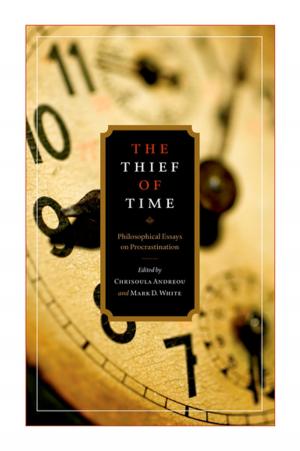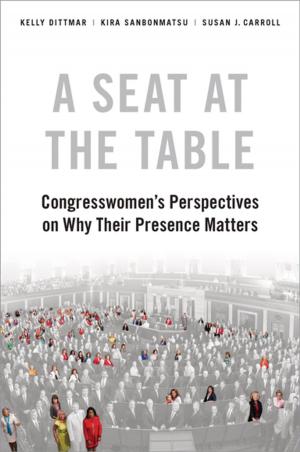The Mathematics of Sex
How Biology and Society Conspire to Limit Talented Women and Girls
Nonfiction, Health & Well Being, Psychology, Social Psychology| Author: | Stephen J. Ceci, Wendy M. Williams | ISBN: | 9780199889211 |
| Publisher: | Oxford University Press | Publication: | September 2, 2009 |
| Imprint: | Oxford University Press | Language: | English |
| Author: | Stephen J. Ceci, Wendy M. Williams |
| ISBN: | 9780199889211 |
| Publisher: | Oxford University Press |
| Publication: | September 2, 2009 |
| Imprint: | Oxford University Press |
| Language: | English |
Nearly half of all physicians and biologists are females, as are the majority of new psychologists, veterinarians, and dentists, suggesting that women have achieved equality with men in the workforce. But the ranks of professionals in math-intensive careers remain lopsidedly male; up to 93% of tenure-track academic positions in some of the most mathematically-oriented fields are held by men. Three main explanations have been advanced to explain the dearth of women in math-intensive careers, and in The Mathematics of Sex, Stephen J. Ceci and Wendy M. Williams describe and dissect the evidence for each. The first explanation involves innate ability--male brains are physiologically optimized to perform advanced mathematical and spatial operations; the second is that social and cultural biases inhibit females' training and success in mathematical fields; the third alleges that women are less interested in math-intensive careers than are men, preferring people-oriented pursuits. Drawing on research in endocrinology, economics, sociology, education, genetics, and psychology to arrive at their own unique, evidence-based conclusion, the authors argue that the problem is due to certain choices that women (but not men) are compelled to make in our society; that women tend not to favor math-intensive careers for certain reasons, and that sex differences in math and spatial ability cannot adequately explain the scarcity of women in these fields. The Mathematics of Sex represents the first time such a thorough synthesis of data has been carried out to solve the puzzle of women's underrepresentation in math-intensive careers. The result is a readable, engaging account suitable not only for academics in an array of disciplines, but for general readers as well--including educators, science policymakers, parents of daughters, and anyone intellectually curious about a key controversy of our time.
Nearly half of all physicians and biologists are females, as are the majority of new psychologists, veterinarians, and dentists, suggesting that women have achieved equality with men in the workforce. But the ranks of professionals in math-intensive careers remain lopsidedly male; up to 93% of tenure-track academic positions in some of the most mathematically-oriented fields are held by men. Three main explanations have been advanced to explain the dearth of women in math-intensive careers, and in The Mathematics of Sex, Stephen J. Ceci and Wendy M. Williams describe and dissect the evidence for each. The first explanation involves innate ability--male brains are physiologically optimized to perform advanced mathematical and spatial operations; the second is that social and cultural biases inhibit females' training and success in mathematical fields; the third alleges that women are less interested in math-intensive careers than are men, preferring people-oriented pursuits. Drawing on research in endocrinology, economics, sociology, education, genetics, and psychology to arrive at their own unique, evidence-based conclusion, the authors argue that the problem is due to certain choices that women (but not men) are compelled to make in our society; that women tend not to favor math-intensive careers for certain reasons, and that sex differences in math and spatial ability cannot adequately explain the scarcity of women in these fields. The Mathematics of Sex represents the first time such a thorough synthesis of data has been carried out to solve the puzzle of women's underrepresentation in math-intensive careers. The result is a readable, engaging account suitable not only for academics in an array of disciplines, but for general readers as well--including educators, science policymakers, parents of daughters, and anyone intellectually curious about a key controversy of our time.















